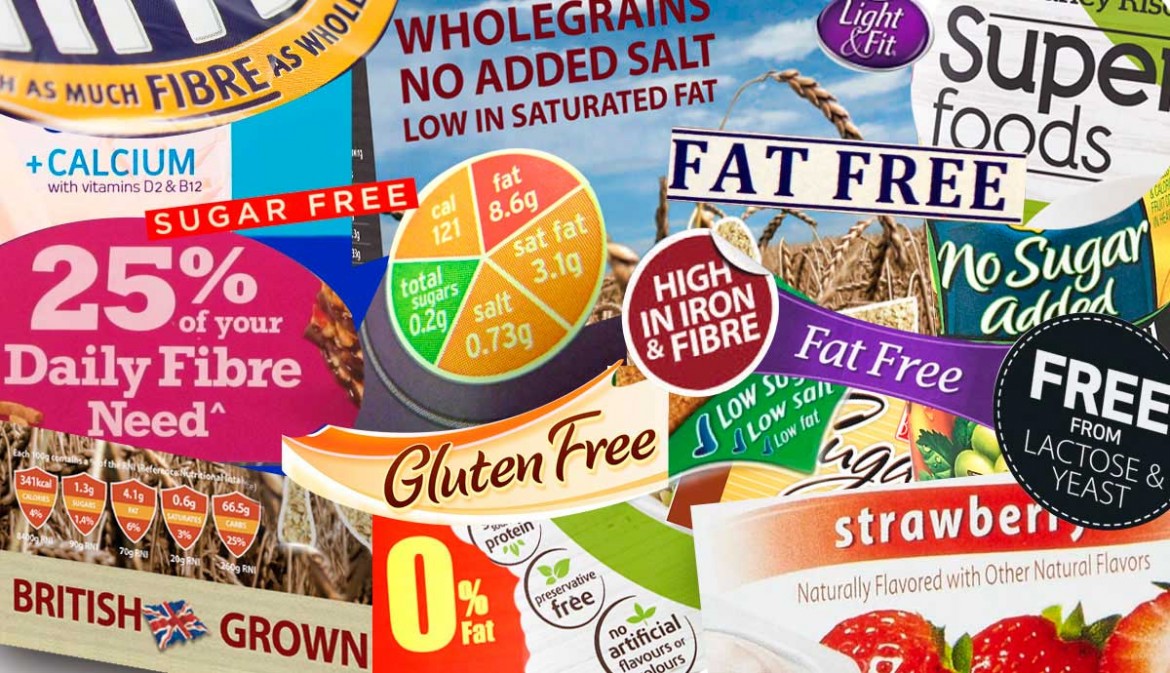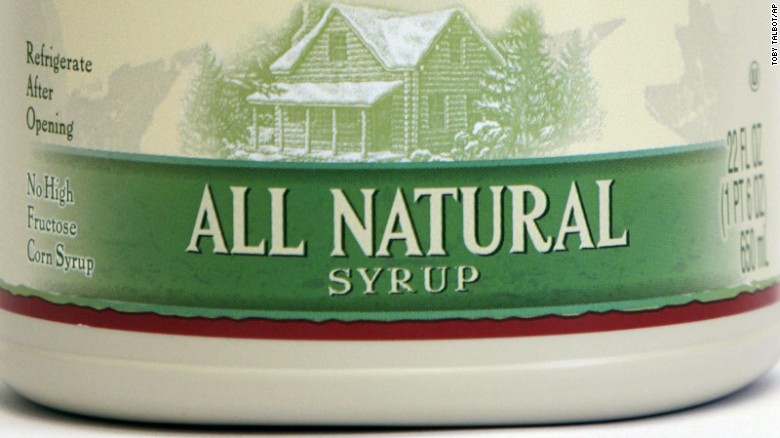42 natural claims on food labels
Method of production claims on food labels - Food labels - Canadian ... Claims about how meat, poultry and fish were raised or fed are voluntary. However, when used on a food label or advertisement, the guidance outlined below is intended to assist with industry compliance and consumer protection. Natural claims. Meat, poultry and fish products may bear the claim "natural" if they use the same criteria as all foods. Are your "all natural" claims all accurate? - Federal Trade Commission That "all-natural" or "100% natural" mean just that. If you advertise your product as "all-natural" or "100% natural" and it contains artificial ingredients or chemicals, now is the natural time for a compliance check. You can file an online comment about the four proposed settlements by May 12, 2016.
Which food labeling claims put you most at risk of a class action ... Find out more about the hot button issues in food litigation, from Prop 65 to natural claims at the American Conference Institute (ACI) food law conference in Chicago on April 23-24. Get the full ...
Natural claims on food labels
The 13 Most Misleading Food Label Claims 7. "Kosher" does not mean non-GMO. Genetically engineered ingredients are openly allowed in Kosher-certified foods. The Kosher certification does not involve testing for GMOs, and Kosher certifications are routinely found on foods containing GMOs. 8. "All Natural" doesn't mean anything at all. Regulating health claims on food labels using nutrient profiling: what ... Objective: Proposed Australian regulation of claims on food labels includes requirements for products carrying a health claim to meet nutrient profiling criteria. This would not apply to nutrition content claims. The present study investigated the number and healthiness of products carrying claims and the impact of the proposed regulation. Health Claims on Food Labels - Consumer Reports Health Claims on Food Labels: What's True, What Isn't A guide to what 'natural,' 'multigrain,' 'free-range,' and more really mean By Sally Wadyka January 07, 2019 R eading the information on food...
Natural claims on food labels. Shoppers being misled by labels that claim food is 'artisanal' or ... Three areas are singled out in the report called Food Labels: Tricks of the Trade.. Foods are labeled "traditional", "artisanal" or "natural", evoking the idea of small-scale craft ... Natural Claims: The Case for Clarity - FONA Question: Is Natural (as related to food): ... Few would debate the fact that confusion exists among consumers about what a natural label claim means, especially when 45% of consumers believe that the "natural" label is verified. Layer on the fact that 82% of consumers admit that they confuse organic and natural products at least some of ... Food labelling and packaging: Nutrition, health claims and ... - GOV.UK You have to follow certain rules if you want to make a nutrition claim (for example, low fat) or a health claim (for example, calcium helps maintain normal bones). You cannot claim or imply that... What Does All Natural on a Food Label Mean? This means an ultra-processed snack food labelled 'made with natural flavours', may be construed as a better, healthier, or safer choice, simply because of the claim 'natural'. Yet, in reality this 'natural' snack food doesn't offer any advantages in terms of health or safety over its ultra-processed competitor who doesn't make the same claim.
Nutrition, health and related claims - Food Standards You can only base health claims on food-health relationships that have been substantiated according to Standard 1.2.7. All health claims must be supported by scientific evidence to the same degree of certainty, whether they are pre-approved by us or self-substantiated by food businesses. General level health claims Natural Food Claims Are Disappearing From Food and Beverage Labels ... PepsiCo. settled a lawsuit over natural label claims by its subsidiary Naked Juice by agreeing to pay out $9 million and to stop using the claim "all natural." Datamonitor found that only 47 percent of Americans think they can trust "natural" food claim on food and beverages. Clearly, Americans are confused by natural label claims. Healthy, Natural, and other Clean Label Claims | Registrar Food manufacturers wishing to ride the wave of the clean label movement should take care to ensure claims made about their products are appropriate. Even in the absence of a regulation, FDA issues warning letters to companies that they deem are making false and misleading statements regarding claims such as "natural" and enforces those for ... What's in a Claim? Would a Food Not Labeled "Natural ... - AOCS FDA is charged with ensuring that food labels are not false or misleading but has acknowledged the difficulty of defining a food as natural because most foods have been at least minimally processed. Historically, FDA has not objected to use of a natural claim for foods that do not contain added color, artificial flavors, or synthetic substances.
13 Misleading Food Label Claims and How Not to Be Tricked However, when the term appears on packaging consumers tend to assume that the food item is of higher quality or healthier than non-organic alternatives. 13. Label Says "Zero Trans Fat" Foods that claim to contain zero trans fat can actually contain up to 0.5 grams per serving. Natural Label Claims - Canadian Food Business DEFINING "NATURAL" The Canadian Food Inspection Agency (CFIA) has issued guidance to industry on the use of natural and, more specifically, on how the prohibition against false and misleading labeling and advertising will apply in the case of natural claims. Food Label Claims - Agriculture Food Label Claims DOWNLOAD FILE April 6, 2021 - Author: Mary Dunckel, Jeannine Schweihofer & Ashley Kuschel, MSU Extension Save Food Label Requirements All information on food labels must not be false or misleading. Product name/statement of identity Net weight Manufacturer's name, city and state Nutrition facts (some exceptions) Natural Label On Food Products - LablCalc - LabelCalc Even though this FDA definition isn't formal, misleading uses of the term "natural" have resulted in multiple lawsuits in which food manufacturers have been sued. In 2011, a class-action lawsuit was filed against Kelloggs' Kashi brand, which adorned their labels with claims including "all natural" and "nothing artificial.".
Nutrition claims - Food Safety A claim stating that a product is 'light' or 'lite', and any claim likely to have the same meaning for the consumer, shall follow the same conditions as those set for the term 'reduced'; the claim shall also be accompanied by an indication of the characteristic (s) which make (s) the food 'light' or 'lite'. NATURALLY/NATURAL
Defining "Natural": Class Actions against Food Labels Some cases specifically question whether ingredients derived from corn and soybeans can be included in products labeled "natural" when research shows that over 90% of these crops are genetically modified when grown in the United States. Click an image to read more about the lawsuit and hover over the ingredients to read their descriptions.
Use of the Term "Natural" in the Labeling of Human Food Products ... the definition of "natural claims" in the fsis's food standards and labeling policy book, in relevant part, states that the term "natural" may be used on labeling for meat products and poultry products if the applicant for such labeling demonstrates that: (1) the product does not contain any artificial flavor or flavoring, coloring ingredient, …
Why Lawsuits Over 'Misleading' Food Labels Are Surging - The New York Times Inspectors with the Food Safety and Inspection Service, the U.S.D.A. agency charged with verifying labeling claims, only have jurisdiction over slaughterhouses and meat processing plants, not the...
The Pitfalls of Making Free Claims in Food Labeling | Natural Products ... Claims that a food is free of a nutrient are permitted only where there is an FDA nutrient content claim regulation authorizing the claim for that nutrient. The nutrients for which there are FDA-authorized free claims include calories, total fat, saturated fat, cholesterol, sodium and sugar. Label statements that fall under the FDA free ...
Use of the Term Natural on Food Labeling | FDA We also note that some Federal courts, as a result of litigation between private parties, have requested administrative determinations from the FDA regarding whether food products containing...
Natural and Organic Label Claims - Agriculture Natural and Organic label claims are used on food products to describe how they were grown, raised and/or processed. Two federal government agencies oversee the production and labeling of food in the United States to ensure that the label claims are truthful and not misleading.
Claim: Natural - Consumer Reports Overview: CR surveys show that most consumers think that the claim "natural" on a food package should mean that the product contains no artificial ingredients, that it was produced without...
Label Claims for Food & Dietary Supplements | FDA Among the claims that can be used on food and dietary supplement labels are three categories of claims that are defined by statute and/or FDA regulations: health claims, nutrient content claims,...
Nature, natural - Method of production claims on food labels - Food ... Substances that impart flavours that have been derived from a plant or animal source, may be claimed to be "natural". As well, any additive, such as preservatives and solvents added to a flavour preparation to have a technological effect solely on the flavour, does not modify the "natural" status of the flavouring material itself.

Get a handle on sugar intake with this nutritionist-approved infographic! | Health and nutrition ...
8 misleading food marketing labels - AGDAILY Here are 8 of the most common misleading food marketing claims: 1. No nitrites or nitrates added. ... or has been added to, a food that would not normally be expected to be in that food." Although a "natural" label usually implies healthier and/or safer, that's just not the case. Whether a chemical is natural or synthetic tells you ...
FDA "Natural" Food Labeling | FDA Compliance Made Easy On November 12, the U.S. Food & Drug Administration ("FDA") announced that it is soliciting public comments on how the Agency should define the term "natural" and regulate its use in food labeling. The FDA has engaged the public's input after receiving two Citizen Petitions requesting the agency take action on establishing a formal ...
Health Claims on Food Labels - Consumer Reports Health Claims on Food Labels: What's True, What Isn't A guide to what 'natural,' 'multigrain,' 'free-range,' and more really mean By Sally Wadyka January 07, 2019 R eading the information on food...
Regulating health claims on food labels using nutrient profiling: what ... Objective: Proposed Australian regulation of claims on food labels includes requirements for products carrying a health claim to meet nutrient profiling criteria. This would not apply to nutrition content claims. The present study investigated the number and healthiness of products carrying claims and the impact of the proposed regulation.
The 13 Most Misleading Food Label Claims 7. "Kosher" does not mean non-GMO. Genetically engineered ingredients are openly allowed in Kosher-certified foods. The Kosher certification does not involve testing for GMOs, and Kosher certifications are routinely found on foods containing GMOs. 8. "All Natural" doesn't mean anything at all.








Post a Comment for "42 natural claims on food labels"